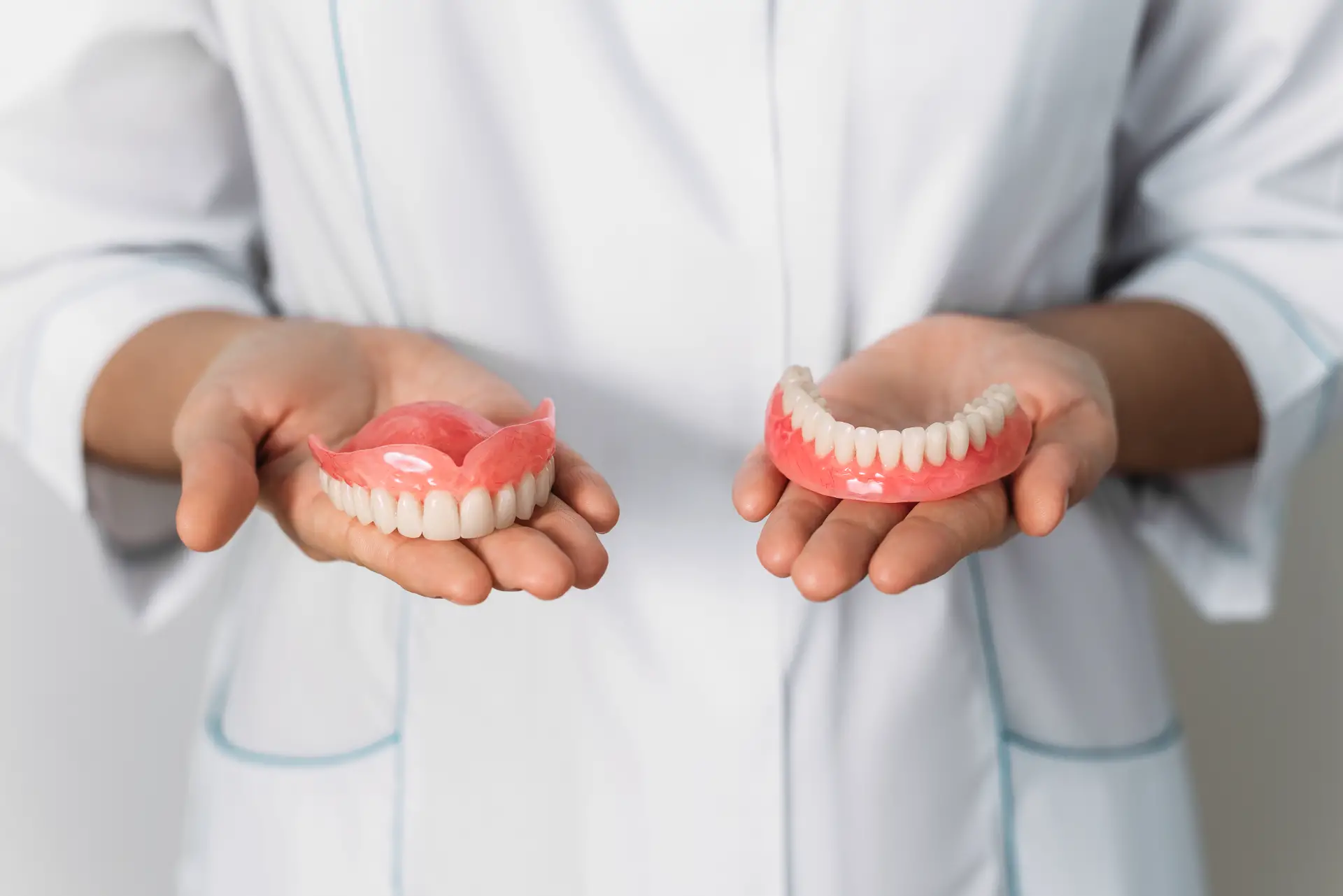Dentures offer an amazing solution for tooth loss, restoring smiles and confidence. However, they aren’t a “set it and forget it” solution. Understanding how long dentures last can help you get the most out of your investment.
Generally, full dentures have an average lifespan of 5-10 years, while partial dentures can last up to 15 years. It’s important to remember that these are estimates – your individual experience may vary depending on several important factors.
Key Takeaways
- Dentures typically last several years. Full dentures have an average lifespan of 5-10 years, while partials can last up to 15 years.
- Factors like wear, changes in your mouth, and proper care all influence how long your individual dentures will last.
- Follow your dentist’s care instructions to maximize the lifespan of your dentures. Avoid attempting any at-home repairs.
- If your dentures become loose, uncomfortable, stained, or hinder eating, schedule a consultation with your dentist.
- Regular dental checkups are crucial for maintaining denture health. Your dentist can spot potential issues early for proactive solutions.
Factors Affecting How Long Dentures Last
Several factors contribute to the longevity of dentures. Understanding these factors can help you proactively care for your investment and maximize their usability. Here are the key elements to consider:
- Wear and Tear: Even with the best care, dentures face daily stresses. The daily functions of chewing, biting, and speaking create continuous forces on dentures. Over time, this leads to gradual material wear, affecting their fit and function.
- Physiological Changes: Our mouths aren’t static. Gums and jawbones naturally reshape throughout life. These changes can alter the fit of dentures that were designed according to a previous oral structure. Ill-fitting dentures are more susceptible to misalignment, leading to potential breakage or accelerated wear.
- Proper Care and Maintenance: Adhering to your dentist’s specific care instructions is essential for optimal denture lifespan. Improper cleaning techniques or the use of unsuitable products can lead to warping, staining, and a compromised material structure.
- Accidents and Damage: Dentures are susceptible to breakage when dropped or handled with excessive force. Even minor cracks or chips can destabilize the denture, increasing the risk of further wear and damage.
Signs Your Dentures Might Need Replacement
Your body and dentures will often send you clues when it’s time for an upgrade. Don’t ignore these red flags as they can impact your comfort, eating, and speaking. Here are some of the most common signs you should watch out for.
They Feel Loose or Uncomfortable
If your dentures start to slip, feel wobbly, or cause soreness, it’s likely a sign of changing gum and jaw structure impacting the fit. Discomfort, gum irritation, and difficulty speaking suggest the need for a professional fit assessment.
Difficulty Eating or Chewing
Dentures should support confident chewing. If they shift, make eating difficult, or cause you to avoid certain foods, their stability might be compromised. Addressing this is key for good nutrition and enjoyment of meals.
They Become Visibly Worn or Stained
While some surface staining is possible, deep discoloration, chips, or noticeable scratches point to more than cosmetic issues. These signs suggest wear beyond regular cleaning and may affect the strength of your dentures.
Frequent Sores or Irritation
Ill-fitting dentures can create friction and pressure points. If you constantly have painful sores or recurring gum irritation, don’t simply put up with it! Your dentist can help with adjustments or discuss long-term solutions.
When to See Your Dentist About Your Dentures
While it’s important to be aware of signs that your dentures might need attention, working closely with your dentist is essential to maintain optimal denture function and comfort. Here’s when to book an appointment:
- Regular Checkups: Even if your dentures feel fine, schedule routine dental visits. Your dentist can proactively identify minor wear, subtle fit changes, or early damage that you might not notice yet. Early intervention can often prevent bigger problems down the road.
- If You Experience Any of the Above Signs: Don’t wait if your dentures become painful, unstable, difficult to eat with, or cause sores. Your dentist can assess the situation and may recommend adjustments like repairs or a discussion about upgrading to a new set.
- Before Making Any DIY Repairs: While tempting, attempting to fix damaged dentures at home often does more harm than good. Always consult your dentist first to avoid compromising your dentures and ensure a safe, lasting solution.
Your Denture Care Playbook
Dentures are a valuable tool for a confident smile and enjoyable eating. By understanding what influences their lifespan, you can make the most of this investment. Remember, pay attention to your body’s signals – looseness, difficulty chewing, or sores are all signs it’s time to check in with your dentist. Treat your dentures with care, follow your dentist’s cleaning instructions, and avoid trying to fix any damage yourself.
Finally, don’t skip those checkups! Regular dental visits are your best bet for long-lasting, comfortable dentures.
Ready for a Denture Checkup or Upgrade?
Whether you’ve had your dentures for a while or are considering them for the first time, Soundview Family Dental is here to help! Our expert team understands the importance of comfortable, well-fitting dentures for your smile and well-being.
Contact us today at (425) 563-6360 to book your consultation and take the next step towards a confident, healthy smile.


